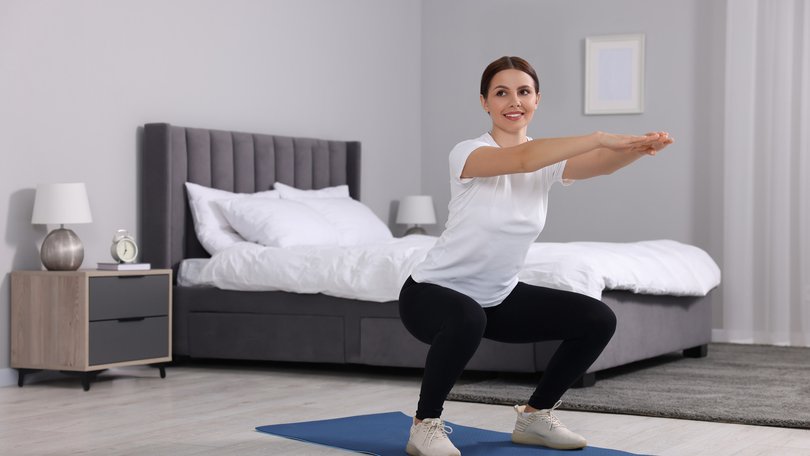SARAH DI LORENZO: Give yourself enough strength to get more sleep by exercising the right way
SARAH DI LORENZO: The right type of exercise at the right time will help sleep issues.

Many of us know strength training is important for healthy aging and of course muscle growth but it can also play a really important role in sleep. Between 10 and 30 per cent of the population experiences chronic insomnia, and around 60 per cent report short-term insomnia symptoms such as difficulty falling or staying asleep. In real terms, that’s hundreds of millions of people worldwide.
While it’s well known that medications, melatonin, and magnesium can be used to support better sleep, what you do throughout the day — especially physical activity —can also make a significant difference. Strength training is an effective, drug-free remedy that can improve sleep quality.
Also known as weight or resistance training, strength training includes exercises like squats, push-ups, and lifting weights. While it’s great for building muscle, it’s also excellent for keeping bones strong. It also helps regulate our biological rhythms and promotes deeper, way more restorative sleep.
Sign up to The Nightly's newsletters.
Get the first look at the digital newspaper, curated daily stories and breaking headlines delivered to your inbox.
By continuing you agree to our Terms and Privacy Policy.There are many ways strength training can assist with insomnia. For starters, it reduces anxiety and stress — two major triggers. Resistance training lowers the stress hormone cortisol and boosts the release of endorphins, which naturally improve our mood and gives a sense of calm. This shift in brain chemistry — reducing racing thoughts or “monkey mind,” as I like to call it — makes it easier to fall and stay asleep.
Our circadian rhythms, which control our sleep–wake cycles, also benefit from strength training. It can increase the release of growth hormone (linked to deep sleep) and boost melatonin production. Melatonin is our sleep hormone and also supports insulin sensitivity, helping to regulate energy levels and prevent blood glucose crashes at night.
Resistance training also improves mood and is a natural antidepressant. Mental health disorders — especially depression — are strongly associated with insomnia. Research shows that resistance training can reduce depression symptoms and, in some cases, be as effective as medication. A healthy mind plays a big role in supporting healthy sleep.
Strength training puts controlled stress on the muscles, causing microtears that the body repairs during sleep. This repair process encourages deeper rest. Many people report noticeably better sleep on the days they engage in strength-based workouts.
It’s the quality— not just the quantity— of our sleep that counts. This is called “sleep efficiency,” or the amount of time we spend in actual, restful sleep rather than just lying in bed. Studies show that resistance training three times each week can significantly improve sleep efficiency, particularly for those who have struggled with sleep in the past.
So now you are probably wondering how often should you do strength training? Ideally, you should have four sessions a week, with a minimum of two. My advice is to do the workouts earlier in the day if possible as intense sessions late at night that are too intense can keep some people awake.
Plan your workouts to target different muscle groups and, if you’re new to strength training, consider getting help from a personal trainer to ensure proper technique and programming. Start with compound movements like deadlifts, push-ups, squats, and lunges.
While the exercise is so important, make sure you are also eating well, staying hydrated, maintaining good sleep hygiene, limiting alcohol, and reducing screen time before bed.
Not only is strength training great for better sleep, but it also offers powerful benefits for physical and mental health. It’s never too late to start. Take the process one day at a time and embrace exercise as a gift to yourself.
